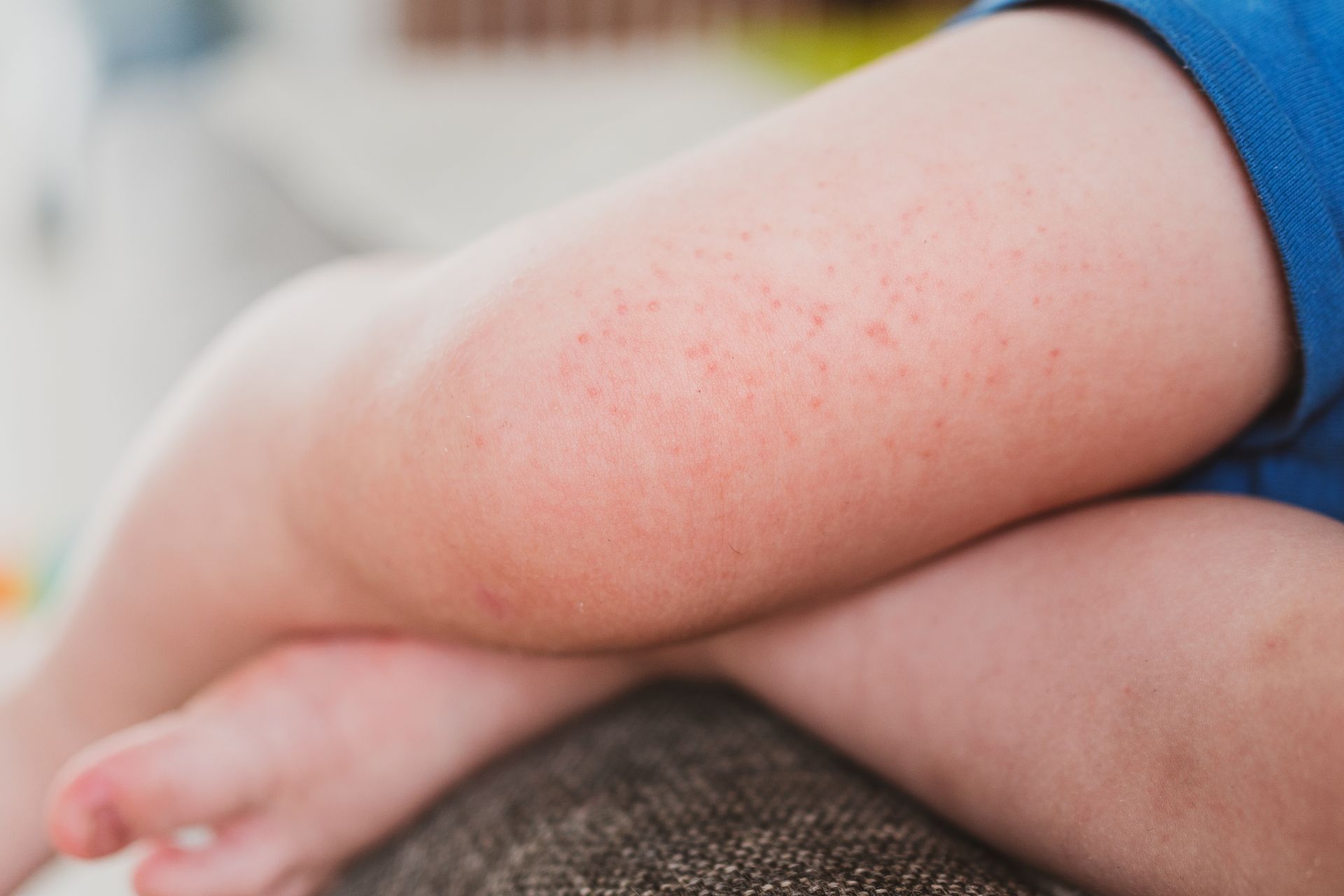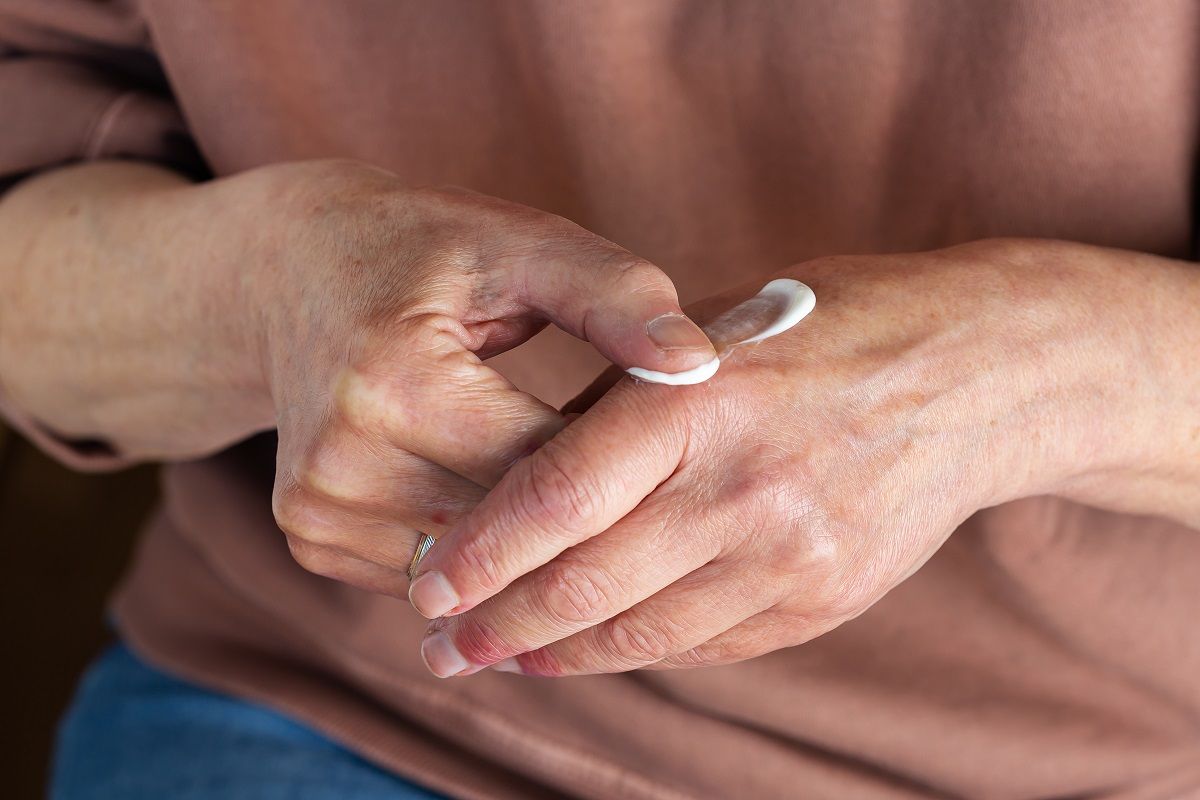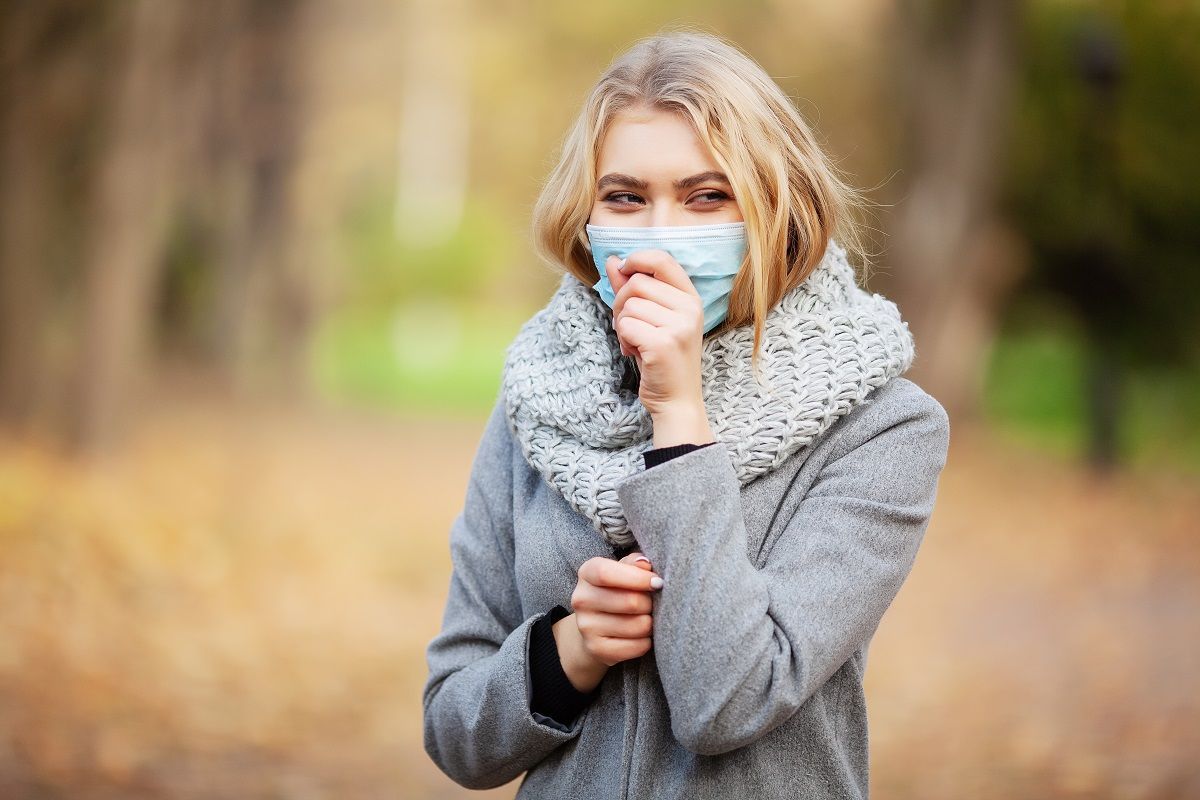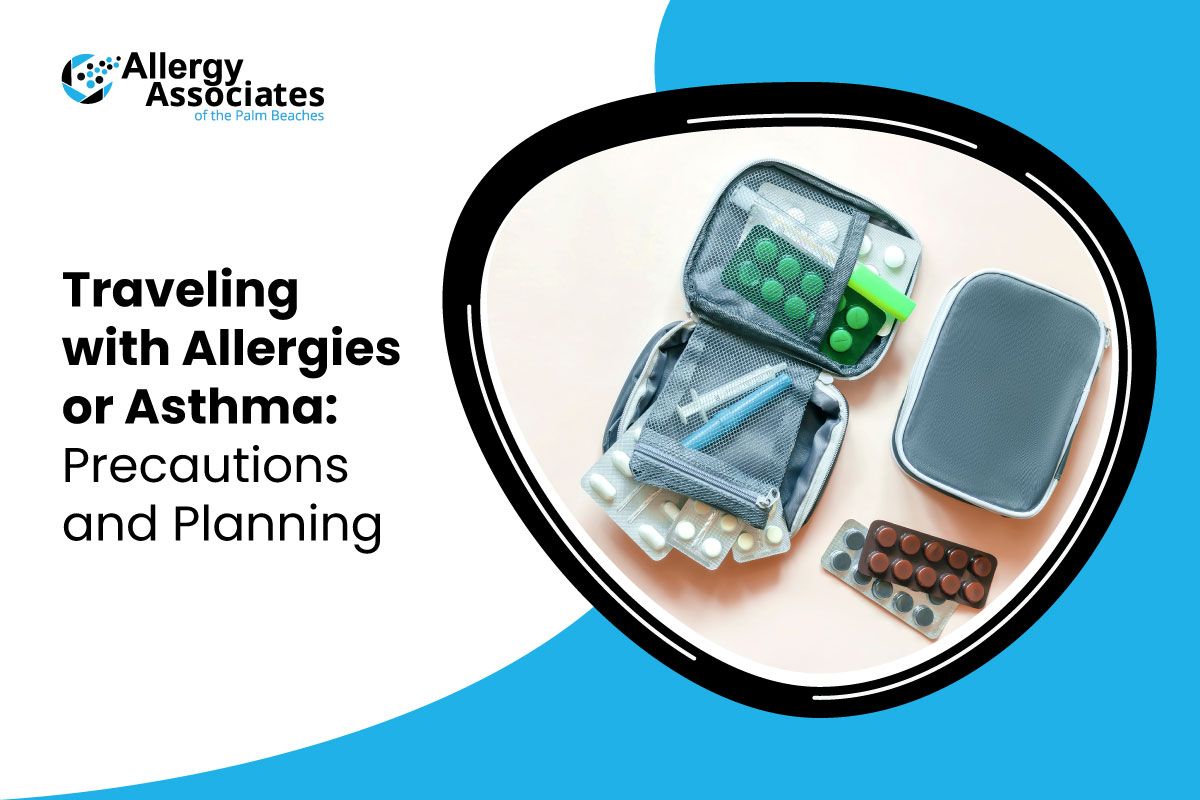
Living with eczema comes with its own set of challenges. Dealing with constant itching, redness, and irritation can lead to disturbances in sleep, productivity, and even self-esteem, creating a significant impact on your daily life.
In the United States alone,
approximately 31.6 million people grapple with eczema and many face stress and anxiety because of inadequate symptom management. In this blog, we embark on a comprehensive exploration, offering insights on how to prevent eczema flare-ups and effective management strategies.
Whether you're seeking relief or supporting someone with eczema, we've got you covered with valuable information for a healthier and more comfortable life.
Three Types of Eczema
Eczema or dermatitis is a chronic condition that affects adults and children. Besides the redness and itching on your skin, this condition can also impact you emotionally.
Essentially, eczema involves inflammation that shows up as a rash, ranging from mild to severe. Experts believe that a combination of genetic factors and environmental aspects contribute to eczema flare up. These are the most common types of eczema:
Atopic Dermatitis:
- The most common type of eczema
- Often hereditary and associated with other allergic conditions
- Symptoms include red, itchy skin, and it commonly appears in childhood
Contact Dermatitis:
- Caused by contact with irritants or allergens
- Has two types: irritant (caused by everyday substances) and allergic (triggered by an immune system response) contact dermatitis
- Symptoms include redness, itching, and sometimes blistering at the contact site
Dyshidrotic Eczema:
- Affects the palms, fingers, and soles of the feet
- Characterized by small, itchy blisters
- Triggered by factors like stress or exposure to certain metals
Significant Impact on Daily Life
Flare-ups aren't just about dealing with physical discomfort; they significantly influence your day-to-day existence. The incessant itching and discomfort can disrupt your sleep, leaving you tired and irritable.
Emotionally, eczema takes a toll, affecting your self-esteem and how you engage with others. Others describe it as having this heightened self-consciousness about their skin.
Managing this chronic condition demands time and effort, often interfering with daily routines.
Importance of Effective Eczema Management
Proper management aims not only to mitigate discomfort and reduce flare-ups but also to address its emotional and social impact. Through lifestyle adjustments, a personalized skincare routine, and eczema flare up treatment, you can effectively minimize the discomfort caused by the condition.
1. Allergen Avoidance
Take a moment to identify common triggers—things like certain fabrics, pet dander, or specific foods that might be stirring up trouble. You might have to approach it like a detective, but by being mindful of these potential allergens, you're actively working towards creating a safe space for your skin to thrive.
2. Regular Skin Checks
Regularly set aside a specific time to inspect for any changes or new rashes caused by eczema flare-ups. This approach allows you to catch potential issues before they escalate, empowering you to take control of your skin health.
Early Signs
Pay close attention to subtle changes—perhaps an increase in dryness, a hint of redness, or a tingling sensation. These are the early signs that a flare-up might be on the horizon. Catching these signals in the initial stages allows you to step in.
Severity Levels
Mild symptoms might include occasional itching and redness, while moderate cases can involve more frequent flare-ups and noticeable discomfort. Severe eczema may manifest as persistent inflammation, skin cracking, and even bleeding.
3. Sun Protection
Incorporating sun protection into your daily routine is more than a precaution; it's a shield for your skin. Opt for broad-spectrum sunscreens with at least SPF 30, and remember to reapply throughout the day. Don't forget your trusted sun hat and lightweight clothing for an extra layer of defense against the sun's rays.
4. Maintaining a Flare-Up Diary
Documenting your daily experiences, including what you eat, what causes eczema flare-ups, environmental factors, and stress levels, can reveal patterns and triggers unique to you. This insightful practice empowers you to make informed decisions and stay one step ahead of potential flare-ups.
5. Stress Management
Stress can be a significant trigger for flare-ups, so effectively managing it is crucial. Whether it's through mindfulness, meditation, yoga, or simply taking a few deep breaths, incorporating stress-relief techniques into your daily routine can make a remarkable difference.
6. Seeking Professional Advice
Armed with the expertise to tailor a management plan specifically for you, dermatologists and allergists are your partners in this journey. Whether it's adjusting your skincare routine, exploring new medications, or discussing lifestyle modifications, their guidance can be a game changer.
Medications and Topicals
For mild symptoms, you can use over-the-counter hydrocortisone creams. If your symptoms are more severe, prescription medications like antibiotics and antihistamines can help. Topical steroids are strong anti-inflammatory medications that need a doctor's supervision. Immune modulators, such as calcineurin inhibitors, work by targeting the immune system to manage symptoms.
7. Dietary Considerations
While individual responses to food can vary, keeping an eye on your diet may unveil potential triggers. Consider incorporating skin-friendly foods rich in omega-3 fatty acids, antioxidants, and hydration.
8. Temperature Considerations
When it's chilly, layer up to trap warmth without overheating, and in the heat, opt for breathable fabrics to keep things cool. Sudden temperature changes can trigger a severe eczema flare up, so take a moment to gauge your surroundings and make adjustments as needed.
9. Humidity Control
Consider investing in a humidifier to add moisture to the air, especially in drier seasons. In humid climates, using air conditioning and proper ventilation can help maintain a comfortable environment. Striking this balance contributes to an atmosphere that's kinder to your skin.
10. Eczema-Friendly Products
Find skincare and household products labeled as eczema-friendly or hypoallergenic. Look for ingredients like shea butter, glycerin, and colloidal oatmeal known for their soothing properties. Steer clear of harsh chemicals and fragrances that might provoke your “eczema skin.”
Cleansers
Opt for fragrance-free, hypoallergenic cleansers to cleanse without stripping away natural oils. Look for formulations designed for sensitive skin, which should be soothing, not aggravating.
Moisturizers
Choose fragrance-free, thick, and ointment-based moisturizers to lock in hydration. Apply generously, especially after bathing, to seal in the moisture. Along with your eczema rash relief medication, consider keeping a travel-sized moisturizer with you for on-the-go hydration.
Clothing
Choose loose-fitting, breathable fabrics like cotton to allow your skin to breathe. Avoid wool and synthetic materials that may irritate. Opt for tag-less clothing to minimize potential friction points.
11. Bathing Habits
Opt for lukewarm water instead of hot and keep your bathing sessions short. Gentle, fragrance-free soaps or colloidal oatmeal baths can be a balm for irritated skin. Pat your skin dry with a soft towel rather than rubbing to avoid unnecessary friction.
Experience Eczema Relief and Improved Skin Health
Understanding and managing your triggers is crucial for eczema relief, empowering you to take proactive steps and prevent flare-ups. Beyond treating symptoms, eczema management fosters self-care, empowering you to navigate life more comfortably and confidently.
Discover expert eczema care at Allergy Associates of the Palm Beaches. Our highly trained doctors specialize in adult and pediatric allergy care, offering personalized solutions for patients of all ages. Conveniently located in North Palm Beach and West Palm Beach, we are dedicated to providing extensive eczema care that addresses your unique skin needs.
Contact us at
(561) 626-2006 or
(561) 659-5916 for comprehensive eczema care.
Allergy Associates of the Palm Beaches
Allergy Associates of the Palm Beaches | All Rights Reserved.










